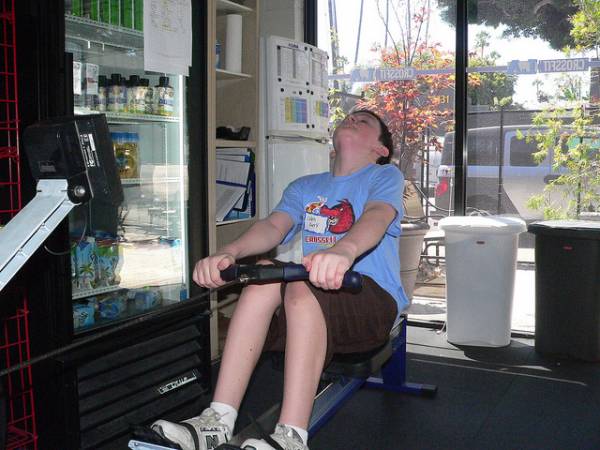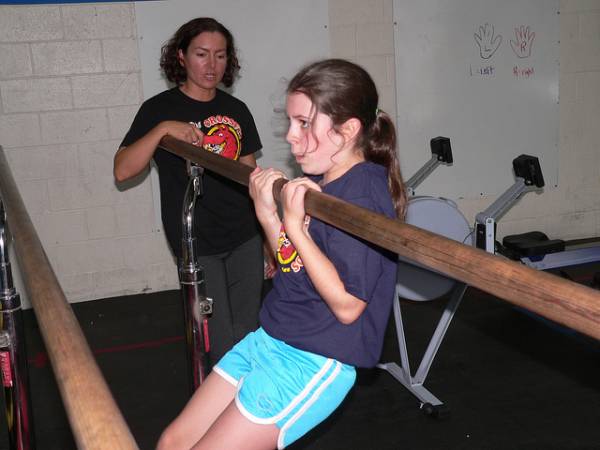With more and more young athletes specializing in one sport year round, coaches certainly seem to have their pick of talented young players participating in their programs. As talented young athletes continue to progress in their training, what is “it” that separates talented athletes from great athletes?
After years of experience in working with athletes of every caliber, I believe there are two traits that differentiate talented athletes from great athletes – mental toughness and a strong work ethic. Let me clarify this statement by first acknowledging that talented athletes certainly can, and many do, possess mental toughness and a strong work ethic, but I assert that great athletes have these two characteristics in abundance.
Athletic talent can be seen at all age levels and at all competitive levels, but in relation to young athletes, raw talent tends to be based on measurable events and often directs a young athlete’s interest in sports. How fast can an untrained young athlete run? Fast runners are talented in running and may opt for sports that include sprints. How fast can an untrained young athlete swim fifty meters? Fast swimmers are talented in swimming and may opt for water-based sports.
Obviously, athletes tend to be more interested in sports in which they perform well, but what separates a talented athlete from a great athlete is their personal approach to competition, practices, and after hours skill training and conditioning.
What Is Mental Toughness?
As applied to sports, mental toughness is the athlete’s ability to have a psychological advantage over an opponent. Generally, athletes described as “mentally tough” are fiercely competitive, driven, goal oriented, disciplined, and are easily able to perform well under stressful situations.
There are many ways to develop and teach mental toughness in a young athlete. More often than not, however, this mental aspect is already embedded in the athlete’s personality, and it is just a matter of further developing this innate ability. According to Dr. Yukelson, Coordinator of Sports Psychology Services at Penn State University, this mental advantage may be realized in varying forms:
- An unshakable belief in the ability to achieve personal competition goals.
- Unique qualities that exceed the competitor’s.
- An insatiable desire and internalized motivation to succeed.
- Ability to bounce back from setbacks with increased determination to succeed.
- Fully focused on the task at hand in the face of competition-specific distractions.
- Able to switch focus on and off as required.
- Not being adversely affected by others’ performances or by internal distractions.
- Able to regain psychological control following unexpected events or distractions.
- Thriving on the pressure of competition.
What Is Work Ethic?
Interestingly, the common phrase “work ethic” has been translated and applied to the sports culture as the phrase “sport ethic,” and while applying to all levels of competition, it is used mainly in conjunction with high performance athletes, i.e. college athletes and professional athletes. I submit that the phrases “work ethic” and “sport ethic” are cultural and/or environmental applications only, as they encompass the same focus, commitment, and perseverance necessary to succeed in any high performance environment, whether related to sports or not.

According to sociological research studies on the sport ethics of high performance athletes, Jay Coakley and Robert Hughes identified several common characteristics of great athletes:
- Great athletes are dedicated to “the game” above all else and demonstrate dedication through unwavering commitment, making sacrifices to play, and meeting the expectations of fellow athletes.
- Great athletes strive for distinction by relentlessly seeking to improve and achieve perfection; winning becomes important as a marker of achievement and one’s willingness to push limits.
- Great athletes accept risks and play through pain to prove to teammates and coaches that they will not succumb to pressure or fear in any situation in which the game and teammates depend on their participation.
- Great athletes accept no obstacles in the pursuit of possibilities in their sport, even when the odds are against them.
Based on my own coaching experiences, I would also add that the youth’s ability to be coached – to listen to, trust, and follow the coach’s judgment and recommendations – are also a mark of a strong sport ethic.
Sport ethics can and should be introduced at all entry-level sports. But, it cannot stop there. As the youth athlete progresses through his or her athletic career, so should the development of the athlete’s sport ethics. At the entry level, the parent and coach are primarily responsible for the athlete – getting the athlete to and from practice, ensuring the athlete has all necessary equipment, teaching the rules and strategy of the sport, teaching sportsmanship and discipline, practicing skill sets within and outside of scheduled practice times, and supporting and encouraging the young athlete.
As the athlete develops and matures, the transference of these responsibilities, from parent and coach to youth athlete, is the key to developing the sport ethic of the athlete. Just as the athlete accepts more responsibility for his or her sport performance, and just as the parent and coach continue to uphold certain sport standards and expectations, the youth athlete continues to develop his or her sport ethic. This is precisely where talent and sport ethic either merge or diverge, deciding the future potential of the athlete.

Talent + Mental Toughness + Work Ethic
Whereas talent may have led to the early success of a young athlete, it is talent, mental toughness, and a strong sport ethic that make an athlete great. Even though sport ethics may be introduced, taught, and encouraged by parents and coaches, not every youth athlete will embrace the challenges that a strong sport ethic requires. This is not something that can be forced. The athlete must have the will, the drive, and the mental toughness to accept the rigors that a strong sport ethic requires.
With so many talented young athletes competing and specializing in sports, parents and coaches are responsible for introducing, instilling, and nurturing mental toughness and a strong work ethic that will transfer to the individual athlete. It is up to the individual athlete, however, to take ownership and responsibility of these attributes to reach his/her athletic greatness.
References:
1. Yukelson, D., “What is Mental Toughness and how to Develop It?” Penn State University. Accessed April 20, 2014.
2. Hughes, R. and Coakley, J. “Positive deviance among athletes: The implications of over-conformity to the sport ethic.” Sociology of Sport Journal (1991) 8, 4: 307-25.
Photos courtesy of CFLA Kids.






